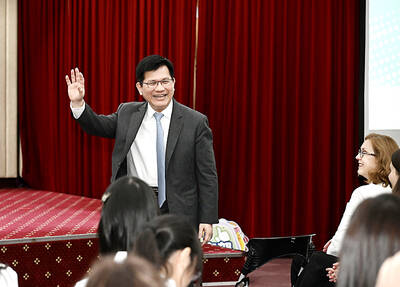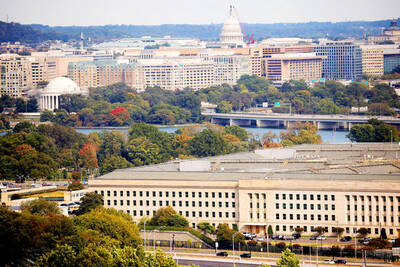Bombed-out cars on highways. Mothers weeping over dead children. A small boy seemingly asleep, the back of his head blown off.
Evidence of civilian casualties is not hard to find in Iraq, but as fierce fighting rages in the south and Baghdad is battered by bombs, nobody can count them.
The Iraqi government reported 194 civilian dead on Tuesday. The Red Cross said it can vouch for 14, but there could be many more. A Web site that compiles Western news media reports said between 199 and 278 were reported dead.
The reality is that none of these figures is complete or accurate.
``There are no solid figures on civilian casualties,'' Geoffrey Keele, UNICEF's spokesman for Iraq, said Tuesday in Amman, Jordan.
US officials say they are taking great pains to avoid killing civilians. Iraqi officials mock their assertions and are largely succeeding in convincing large parts of the world that the war is targeting innocents.
As for overall figures, however, there is little information.
The International Committee of the Red Cross says it has counted 14 dead and 110 injured since Sunday in airstrikes on Baghdad. It has no figures for other parts of the country.
"We usually don't give casualty figures unless they're the result of our immediate observation," said Muin Kassis of the Red Cross in Amman.
In the southern city of Basra, where UN Secretary-General Kofi Annan has warned of a humanitarian catastrophe, Kassis said: "We have no accurate account of casualties."
The Web site www.IraqBodyCount.net, which compiles news reports, gives a minimum count on civilian casualties of 199, and a maximum of 278. The range is due to conflicting reports.
Iraqi officials have reported more than 200 civilian casualties.
But most of the evidence of civilian casualties is anecdotal -- although no less powerful.
Journalists, taxi drivers and refugees who show up at this border tell of dozens of bombed-out cars lining the highway from Baghdad.
Iraqi newspapers publish photographs of decapitated bodies.
Every day, most Arab television stations show footage from Iraqi hospitals, where men, women and children lie in agony from injuries attributed to US missiles.
"My son was killed in the shelling," wailed a woman dressed in black, lying in a hospital bed next to another son, a toddler. Her image was broadcast on the Saudi-owned al-Arabiya network.
Perhaps the greatest impact came from Qatar's al-Jazeera network, which showed an Iraqi boy, maybe 12 years old, his head half blown off and a tranquil expression frozen on his face.
An al-Jazeera anchor apologized for showing such disturbing pictures, but said: "The world should know the truth."
Still photos taken from the network were carried on the front pages of newspapers across the Arab world. "America's missiles of freedom assassinate the children of Basra," read a headline in Lebanon's leading newspaper, As-Safir.
Syria's official news agency SANA reported that a US missile hit a passenger bus carrying fleeing Syrian workers on Sunday, killing five people and injuring 10. A US Central Command spokeswoman said she had no information on the report.
Another US missile killed a Jordanian taxi driver on Thursday while he made a phone call at Kilo 160, a rest stop 24km west of Baghdad.
Taxi driver Sameer Sabah, a friend of the dead man, went pale when he heard one of his passengers at the Jordanian border speaking Spanish. Spain has been a key supporter of the US-led war.
"Get out of my car before I do something," he said in a chilling monotone. "Your people killed my friend. He was killed by the cold hands of the American Army."

FIREPOWER: On top of the torpedoes, the military would procure Kestrel II anti-tank weapons systems to replace aging license-produced M72 LAW launchers Taiwan is to receive US-made Mark 48 torpedoes and training simulators over the next three years, following delays that hampered the navy’s operational readiness, the Ministry of National Defense’s latest budget proposal showed. The navy next year would acquire four training simulator systems for the torpedoes and take receipt of 14 torpedoes in 2027 and 10 torpedoes in 2028, the ministry said in its budget for the next fiscal year. The torpedoes would almost certainly be utilized in the navy’s two upgraded Chien Lung-class submarines and the indigenously developed Hai Kun, should the attack sub successfully reach operational status. US President Donald Trump

Taiwan Semiconductor Manufacturing Co (TSMC, 台積電) is expected to start construction of its 1.4-nanometer chip manufacturing facilities at the Central Taiwan Science Park (CTSP, 中部科學園區) as early as October, the Chinese-language Liberty Times (the Taipei Times’ sister newspaper) reported yesterday, citing the park administration. TSMC acquired land for the second phase of the park’s expansion in Taichung in June. Large cement, construction and facility engineering companies in central Taiwan have reportedly been receiving bids for TSMC-related projects, the report said. Supply-chain firms estimated that the business opportunities for engineering, equipment and materials supply, and back-end packaging and testing could reach as high as

ALL QUIET: The Philippine foreign secretary told senators she would not respond to questions about whether Lin Chia-lung was in the country The Ministry of Foreign Affairs on Wednesday confirmed that a business delegation is visiting the Philippines, but declined to say whether Minister of Foreign Affairs Lin Chia-lung (林佳龍) is part of the group, as Philippine lawmakers raised questions over Lin’s reported visit. The group is being led by Deputy Minister of Agriculture Huang Chao-chin (黃昭欽), Chinese International Economic Cooperation Association (CIECA) chairman Joseph Lyu (呂桔誠) and US-Taiwan Business Council (USTBC) vice president Lotta Danielsson, the ministry said in a statement. However, sources speaking on condition of anonymity said that Lin is leading the delegation of 70 people. Filinvest New Clark City Innovation Park

DEFENSIVE EDGE: The liaison officer would work with Taiwan on drones and military applications for other civilian-developed technologies, a source said A Pentagon unit tasked with facilitating the US military’s adoption of new technology is soon to deploy officials to dozens of friendly nations, including Taiwan, the Financial Times reported yesterday. The US Department of Defense’s Defense Innovation Unit (DIU) is to send a representative to collaborate with Taiwan on drones and military applications from the semiconductor industry by the end of the year, the British daily reported, citing three sources familiar with the matter. “Drones will certainly be a focus, but they will also be looking at connecting to the broader civilian and dual-use ecosystem, including the tech sector,” one source was